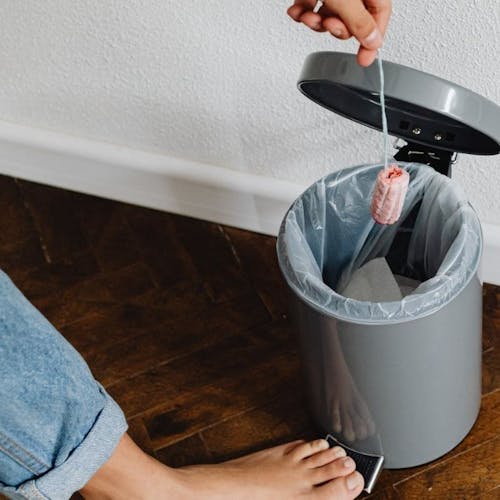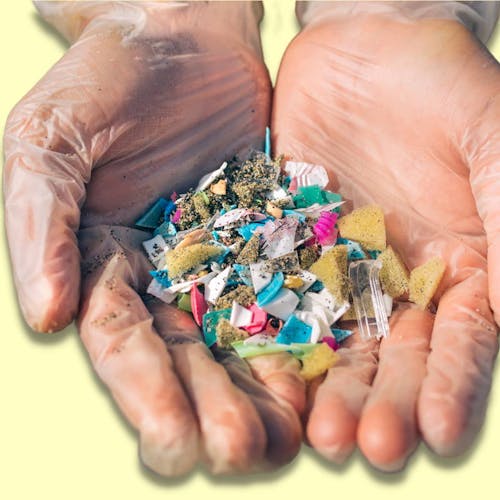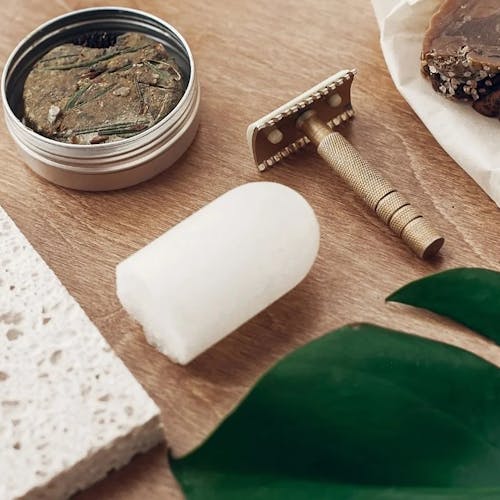This website uses cookies to enhance the user experience. By using Yoppie you are agreeing to our use of cookies.
Zero-Waste Periods: How To Make That Time Of The Month More Eco-Friendly
Written by Yoppie
17 Jun 2020
Here’s the issue…
Go applicator-free
Look for sustainable packaging
Switch to organic cotton products
Try reusable period products
Pick biodegradable products
So you’ve ditched the plastic cutlery, carry extra tote bags everywhere, and are a devoted recycler… it’s time to think about a little-known contributor to the planet’s plastic problems, periods!
Here’s the issue…
You may be wondering how something that occurs only a few days each month can be damaging to the environment, but don’t forget that half of the world’s population is having periods and unknowingly contributing to the same issue.
Disposable menstrual products are a big problem; the Women’s Environment Network found that some period products are made of up to 90% plastic - that’s the equivalent of 4 plastic bags in one sanitary towel. And where does this plastic go? Surprisingly, around half of UK women flush their tampons down the loo after use, and since they’re designed to absorb liquid and not to break down easily, they contribute to around 370,000 UK sewage blockages every year.
Of course, our oceans take the brunt of these issues. The Marine Conservation Society found that between 1.5 and 2 billion menstrual products are flushed down toilets and go on to contribute to the menstrual waste that is regularly cleaned from beaches. So, let’s look at what you can do to limit your contribution.
Go applicator-free
Plastic applicators are one of the worst waste offenders. These are the plastic tubes that some tampons come in, used to make the insertion of tampons easier. That said, inserting a tampon without an applicator is far from impossible - in fact, it’s very simple!
While applicators can be useful in some cases, it’s worth trying out applicator-free tampons (that's why our organic tampons have this option) to see if they make a difference to you. Chances are they will feel largely the same, so making the change to applicator-free can help limit your plastic waste without changing your period experience.
Look for sustainable packaging
When you are shopping for period products, make a point to look at the packaging; is it recyclable? As a product that half of the world’s population uses once a month, making sure that the packaging is sustainable (*ahem* like ours) can make a bigger difference than many people think. And of course, you can do your part by making sure it ends up in the correct recycling bin.
Switch to organic cotton products
The National Center for Health Research found that a small amount of the toxic chemical dioxin can be found in rayon fibre and non-organic cotton, which are the materials most commonly used to make tampons.
By switching to organic cotton, you can ensure that dioxin found in tampons not only stays out of your body but also keeps our environment protected. Our tampons, pads and liners are all made from 100% organic cotton and natural bamboo (including both the tampon and the string!). They're all biodegradable, hypoallergenic, unscented, breathable and produced without the use of harmful chemicals, including being purified without chlorine. Our pads and liners also use waterproof backings that are biodegradable and compostable.
Put simply, Yoppie's products offer an all-round eco-friendly option!
Try reusable period products
There are a number of reusable options springing up on the market, and while they have not yet gained much popularity, they may be worth a try for anyone who is particularly dedicated to having a completely zero-waste period every month. Things like menstrual cups, multi-use liners, and even period underwear can help limit the waste you produce.
Pick biodegradable products
We know that half of UK women flush their sanitary products down the toilet after use, which contributes to major problems, but how should we be disposing of them instead? After all, they definitely can’t be recycled! Throwing them away often means they end up in landfill, so ensuring you buy products that are biodegradable can make a big difference and limit the impact this has on our planet.
Have any more eco-friendly period tips? We’d love to hear them! Share with us over on Instagram @itsyoppie, and do your bit to help save the world with our personalised period subscription box, delivered easily and regularly through your letterbox. It's only what you need, and packaging is all slimline and fully biodegradable. Drop that plastic today!
Section jump
Back to top
Subscribe To Our Newsletter
YOPPIE





© 2026 Yoppie is a registered trademark of Phlo Technologies Ltd.
Yoppie's supplements are not a substitute for a varied diet and healthy lifestyle and are not intended to diagnose, treat, or cure any disease. If you are pregnant, breastfeeding, have a medical condition or are under medical supervision, please consult with your doctor before taking any of our products.






